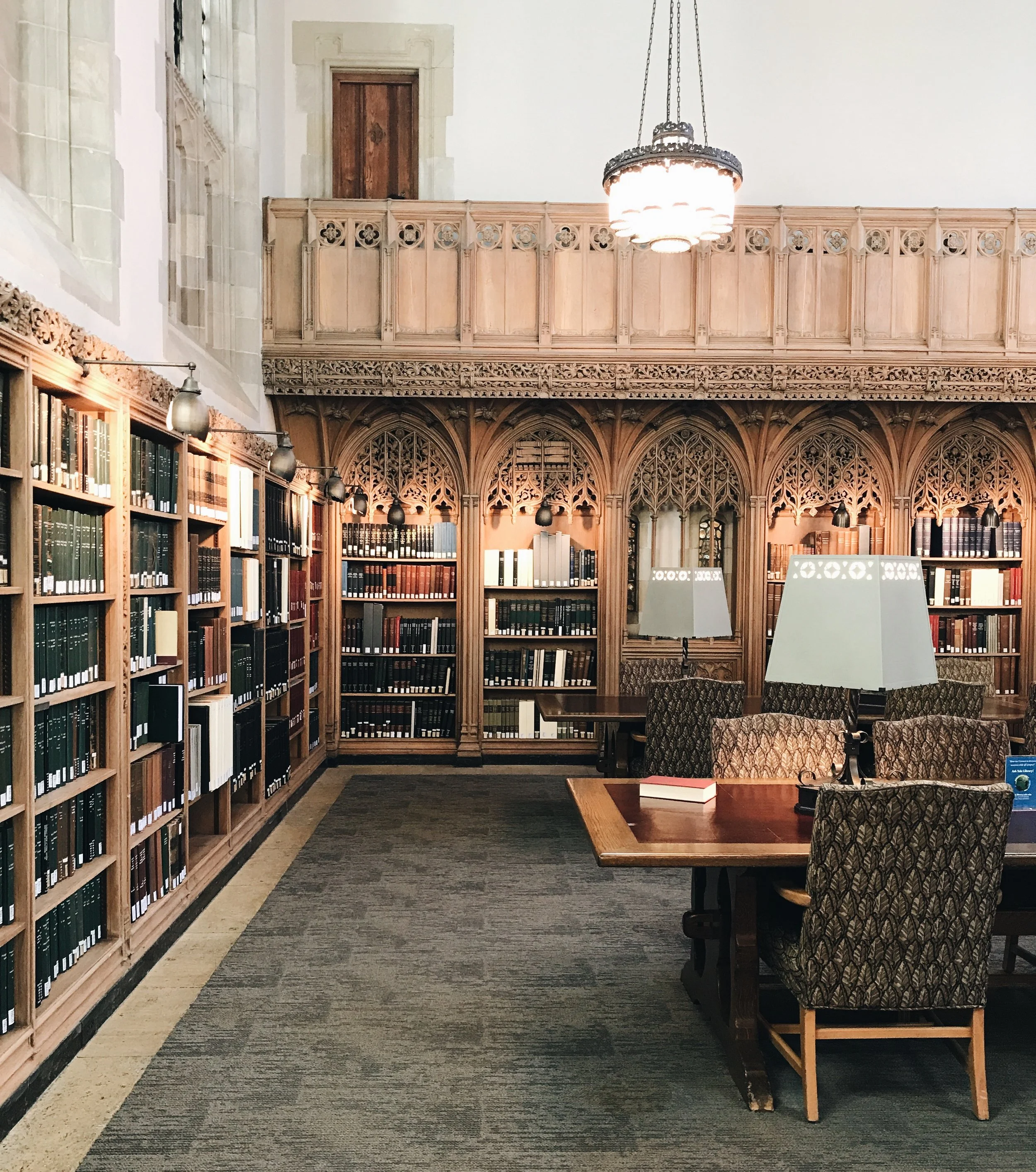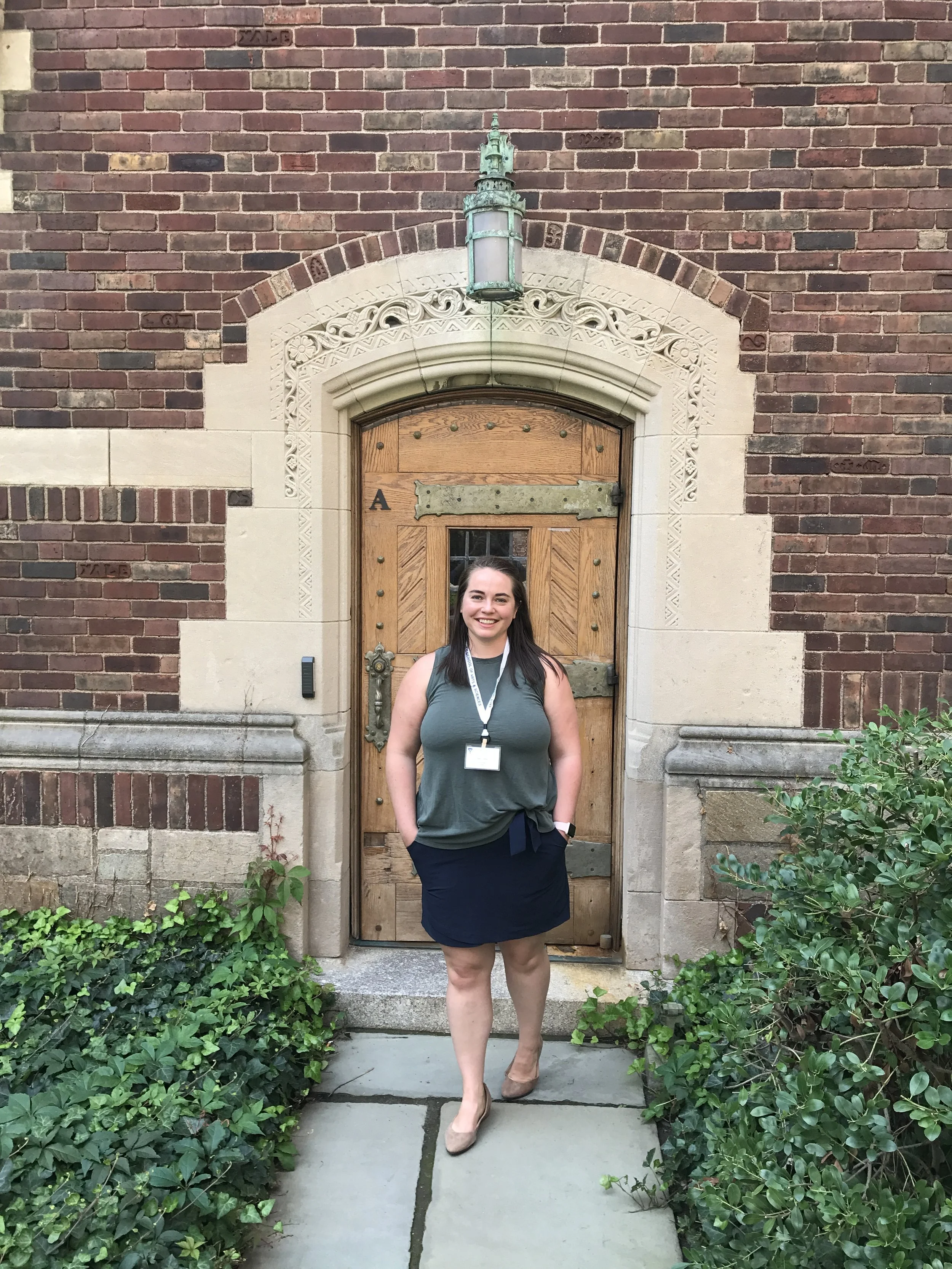In August 2017, I was invited to become a Junior Fellow at Yale's Center for Cultural Sociology by Directors Dr. Jeff Alexander, Dr. Phil Smith, and Dr. Ron Eyerman. I am looking forward to attending the estimable weekly CCS workshop, known for it's rigor, lively conversation, and productivity. This year, I will attend as a participant during Q&A and feedback, and then next year, will contribute a paper.
Read MoreAfter months (and years) of preparation, I have decided to accept Yale's offer to join their Sociology department as a doctoral student. I'm thrilled!
Read MoreToday is a celebration of Homecoming at my first alma mater, Gordon College, a place that became a home to me 10 years ago and will always hold a special place in my heart. Gordon provided a safe space for me to grow as an intellectual, a spiritually-minded person, and as a friend. And I met amazing people of all ages - we laid in the middle of the quad and dreamed about love, we danced through all hours of the night, we practiced speaking other languages, we shared joy in our work, and we spent a ton of time hanging out in the trees. When I'm having a particularly hard day, most often the quickest calm comes over me when I picture myself in my bed in my dorm, the window open, the rain pouring, the muffled laughs of my friends in the next room.
Read MoreToday, I want to share a bit about my time spent studying for my second degree (a second BA in sociology), as well as my capstone project - my honors thesis. It was two and a half years in the making, and will serve as the foundation for my career in a lot of ways. Changing as I changed, it became this fluid, dynamic piece of research and writing that feels alive - like a snapshot of where I am in this moment, and not just professionally, but personally, as well.
Read MoreLast week, I flew out to Boston to complete archival research for my honors thesis at the Massachusetts Historical Society in Boston, Massachusetts. It was incredible! If I wasn't a history nerd before (I was), it is surely obvious now, especially since I just threw out the words "archival" and "historical society" at you. Often when I tell people what I am researching, I am met with blank stares - it is an obscure topic in a faraway time in colonial American history. However, when I was at the historical society, I got to hold in my hands letters and journals that dated back to the 1600s. Many of them were penned by the very men I am studying. It was absolutely incredible to be so close to the humanity of history. It is surely not obscure anymore - at least in my mind.
Read MoreWhen reading today for my Self and Modern Society class, taught by sociologist Leslie Irvine, I was struck by this passage about the Romantics by Roy F. Baumeister from his book Identity, Cultural Change and the Struggle for Self (1986):
The Romantic ideas about personal destiny apply to the potentiality aspect of identity, whereas the early modern period had dealt with the interpersonal aspect. But the approaches are similar. The early modern period developed the belief in the hidden self, which meant that the intentions and motives of a person had to be discovered. The Romantics made personal potentiality something that also had to be discovered, but discovered in a different way. Poetry, for example, had previously been regarded as arising from divine inspiration, but the Romantics began to think of poetry as deriving from the buried treasures within the self of the poet (62-63, emphasis original).
Immediately upon reading this, I remembered a Ted talk I love by author Elizabeth Gilbert (author of Eat, Pray, Love).
Read MoreWhat are your thoughts on immigration reform? Have you given this issue much of your time lately?
Shared above is a heartbreaking photojournalism piece from The New York Times. I was given the link to this documentary as a part of an assignment for a sociology class I'm taking this semester on food and society, and in the nine or so minutes that it took me to watch this film, I've been more moved to think and act critically on this issue than I have in the last nine years since I turned 18-years-old, and became a registered voter in the state of Colorado. All the talk in this year's midterm election cycle, all the ad campaigns, all the debates - they don't hold a candle, in my opinion, to the effectiveness of this documentary in communicating the pressing nature of immigration reform.
Read MoreThis semester, I've had the pleasure of taking a course on the American Revolution and the Early Republic with Dr. Fred Anderson here at CU-Boulder. Even though I've spent a great portion of my life idolizing the Founding Fathers, and studying colonial American history while an undergrad in Boston, I've never actually taken a course on the subject of the Revolution and the creation of the Constitution. How that one slipped through the cracks, I'm not sure. Nevertheless, it's thrilling to be able to spend such focused time learning about this pivotal moment in our nation's history, and especially to be studying under such an brilliant historian of early American history as Fred Anderson.
I've had a few surprises along the way, as Dr. Anderson has made arguments about the narrative of the Revolution that I hadn't really thought of before. How timely, too, that I am jumping into this material when the nation is up in arms about the new AP U.S History curriculum.
Read MoreWalking back to the library from class today, I realized that I am about halfway through the fall semester. I started thinking about what I've learned so far, what progress I've made, and what I have to show for all the time I've spent crammed into the stacks of Norlin Library, wanting quiet (and craving an office of my own).
Read MoreThe last few weeks of my research were spent wrestling with the idea of merchants in seventeenth century New England. I read Bernard Bailyn’s The New England Merchants in the Seventeenth Century, as well as excerpts from the Massachusetts Historical Society’s collections of letters from the Mathers to leaders in the Bay Colony during this time. Most of my research up to this point had been spent studying the religious beliefs of New England settlers, and their relationships with the Native Americans, as well as their beliefs about government and their thoughts on England.
Read More
